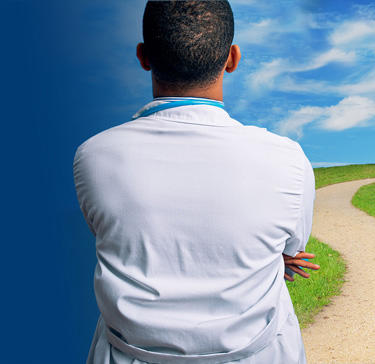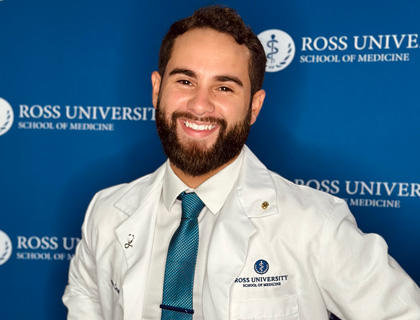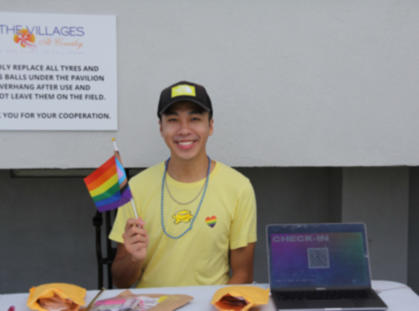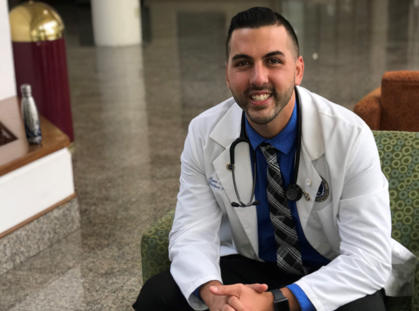Leaders at Ross University School of Medicine (RUSM) know students are struggling to find normalcy and comfort in a virtual-learning environment. They understand the criticality of providing a comprehensive, simulated and robust learning platform so students can continue their medical-education journeys uninterrupted. And they are acting on it.
“We need to think outside of the box to overcome challenges and create the best experiences for students,” said Rhonda McIntyre, MBBS, FAAP, FRCP(C), associate dean of medical sciences for RUSM. Her clinical counterpart, Seeth Vivek, MD, DLFAPA, associate dean of clinical sciences and chair of psychiatry, added, “We must engage students even when they are at home, and ensure they are also involved with the specialty they’ve chosen.”
Instead of waiting for the strict pandemic-induced limitations to relax, Drs. McIntyre and Vivek along with their respective faculty teams, are breaking the traditional boundaries of classroom and clinical education to reinvent a program that can support and challenge students during this time of limited patient interaction. “To some students, virtual learning has not been a challenge because it comes naturally to them,” Dr. Vivek explained. “But it’s been difficult for others who are more comfortable in the classroom or clinical setting where they accompany residents and attendings on rounds and play detective with the clues in front of them.”
Proactive Options
Among some of the innovative options currently being researched and considered by RUSM faculty and staff for all students are:
- Expanded Use of Simulation Programs — exploring several options, knowing they will not fully replace human touch, physical interaction, examination or conversations with live patients
- Small Group Tutorials — embracing a more intimate setting between a professor and a select number of students tailored to the group’s ability and interest
- Active Learning — use of recorded lectures as a resource along with synchronous, live learning tutorial style sessions with question-and-answer segments
- Office Hours with Medical Sciences Faculty, Clinical Faculty/Hospital Chairs/Directors — offering engagement with hospital leaders from varying specialties (this option was temporarily shut down with the COVID-19 emergence but can now be revisited)
- Student Led — encouraging students to introduce themselves and begin a conversation with someone from their specialty or taking this time to explore different specialties
- Faculty Led — assigning students to reach out to hospital leaders as part of their coursework
- Video Mock Rounds (will be offered in October) —videoconferencing of the doctor-patient interaction using standardized patients
- Use of Virtual Platforms — exposing students to a wide range of clinical scenarios
- Expansion of student participation at clinics and hospitals, using sophisticated technology to overcome limited-access areas
- Telehealth (under way since May) — resuming the option to leverage telehealth offerings, in bringing the doctor-patient interaction to the student in a safe environment
- Allows students to remain a part of the clinical environment while sharpening critical reasoning and thinking skills
- Interest Group Clubs — meeting virtually once a month with the department clinical chair, accompanied by alumni and guest speakers
- Broadening current participation options to all students
- Expanding offerings to include other-pertinent areas:
- Social Justice
- Feeding the Poor
- Religious affiliations
Get Ahead on To-Do List
During this challenging time, Drs. McIntyre and Vivek encourage students to proactively prepare for what’s ahead by checking off items on their to-do lists:
- 1st-Year Students — engage in service learning and other relevant volunteer opportunities, paying attention to safety first
- 2nd-Year Students — practice clinical skills in the remote setting using virtual platforms
- 3rd-Year Students — apply for electives; research specialties and internships
- 4th-Year Students — review and revise resumes; research residency programs and seek guidance, if needed; conduct mock interviews with classmates, family and friends; draft a personal statement that can be reviewed by writing professionals
While many of these options may be more involved, the ultimate goal at RUSM remains the same — to graduate exceptional physicians who transform the medical wellbeing and healthcare of people worldwide.
Visit RUSM to learn more about medical programs and other opportunities. If you have a topic you’d like to learn more about, please share your feedback with us.




